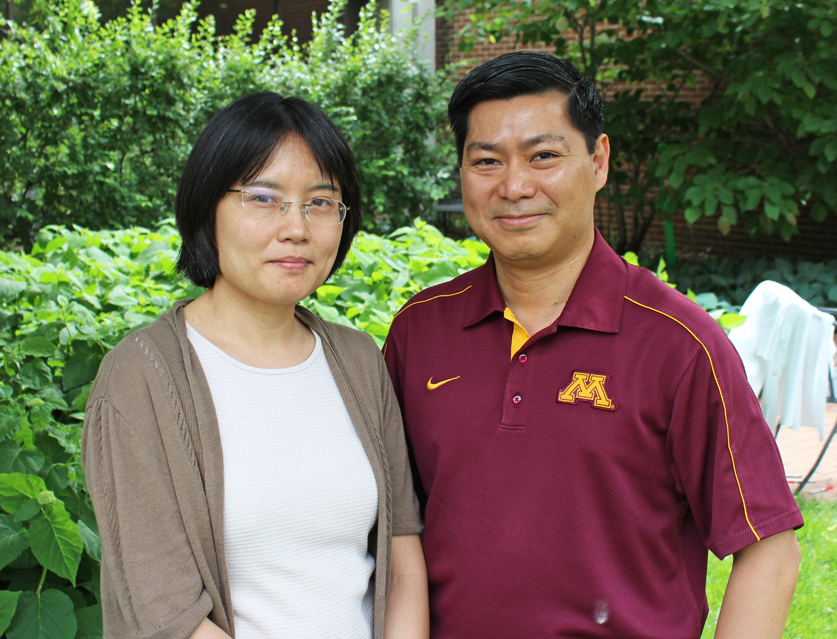Fighting to find a vaccine for COVID-19 using animal models
May 8, 2020

VBS Associate Professors Yuying Liang and Hinh Ly along with the research team at the Institute of Molecular Virology (IMV) recently received multiple funding supports from the SOM COVID-19 Rapid Response mechanism to work on several projects with a common goal of mitigating COVID-19 disease.
Some of the efforts include the use of two separate vaccine development platforms (the Liang/Ly lab’s patented Pichinde virus-based reverse genetics system and the versatile Viral Like Particle or VLP platform) that are amenable to express various combinations of the protein antigens from the new coronavirus in order to stimulate robust humoral and cell-mediated immune responses against the virus. As a result, they have been able to create the first generation of the Pichinde virus-based COVID-19 vaccine candidate and are testing it in laboratory mice.
In the meantime, they are engineering new generations of COVID-19 vaccine candidates based on these two vaccine development platforms for testing first in wild type mice at UMN and later, if deemed necessary, in the human hACE2 transgenic mouse model and perhaps also in non-human primates in the laboratory of their collaborators at outside institutions through an ongoing multi-PI NIH funded grant for the work on the other highly pathogenic virus (Lassa virus) that causes lethal hemorrhagic fever infection.
Through the support of the SOM COVID-19 Rapid Response mechanism, the Liang/Ly research team has successfully designed a new serology ("antibody") test in collaboration with Dr. Marc Jenkins in the Medical School to use a pure batch of the recombinant nucleocapsid (N) protein of the new coronavirus to develop an immunoassay ELISA (Enzyme Linked Immunosorbent Assay) to screen human patient sera for serological evidence of exposure to the new coronavirus. They are catalyzing collaborations with colleagues in the Veterinary Diagnostic Lab to obtain clinical samples from small companion animals (cats and dogs) and livestock (swine and poultry) in order to use our newly built N-based ELISA to screen animals for their potential exposure to COVID-19 and to determine whether some of these animals may serve as intermediate hosts of this highly contagious virus.
Last but not least, also through the support of the SOM COVID-19 Rapid Response mechanism, the research team is studying the basic mechanism of how the viral nucleocapsid (N) protein of this new coronavirus can dampen the immunity of the infected individual in order to discover a new viral target (an Achilles' heel) to cripple virus replication through the use of new antiviral drugs, which can help mitigate COVID-19 disease/pathogenesis.